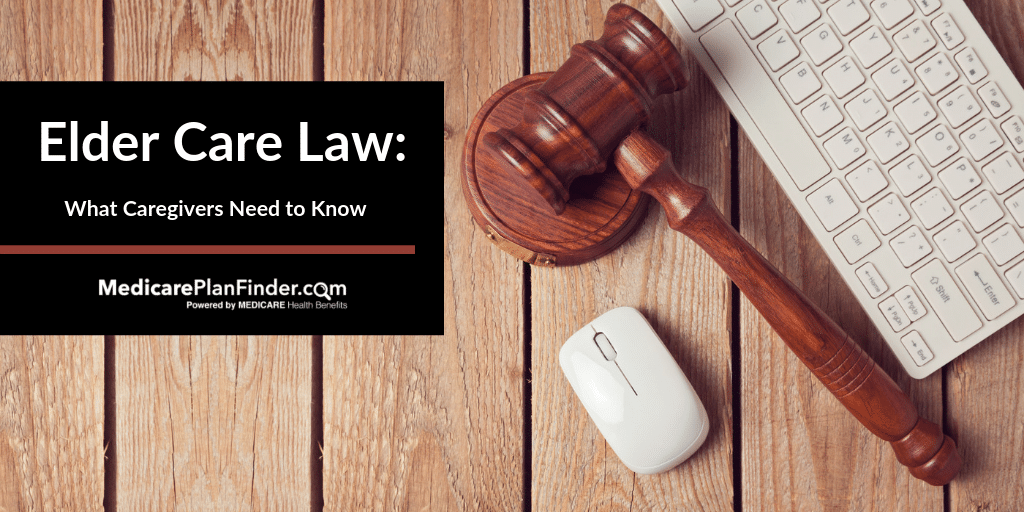
Elder Care Legal Advice: What Caregivers Need to Know
June 28, 2019While most of caregiving is handling everyday tasks such as bathing and eating, a lot of legal issues surround elder care. Elder law is the body of rules created to protect the elderly. It covers areas such as legal guardianship and protection against elderly abuse and neglect.
You may have to fight for your loved one or for yourself. Many caregivers also take on estate administration and power of attorney issues along with medical care decisions. It can seem daunting, but we’re here to answer your questions and provide support.
Elderly Abuse
Unfortunately, some people take advantage of the elderly in their vulnerable state and they fall victim to abuse at the hands of nurses, strangers, and even family members. Elderly abuse comes in different forms including physical abuse, financial abuse, emotional abuse and neglect. It can be easy to overlook the signs of elderly abuse, but it is important to pay attention to your loved ones to catch these things early on.
Signs of Elderly Abuse
Nursing home staff or other caregivers may seriously mistreat your loved one. Here’s what to look out for:
- Signs of injury such as bruises, welts, or scars, especially if they’re on only one side of the body
- Pill bottles that have more or less remaining product than they should
- Nursing homes refusing to let you see your loved one alone
- Money or other items missing from the senior’s home
- Malnourishment not resulting from an illness
- Lack of grooming or poor hygiene
- Untreated bed sores
- Dirt, bugs, soiled bedding or other indications of unsanitary living conditions
- Leaving the senior out in the elements with unsuitable clothes
- Substandard living conditions such as faulty wiring or lack of heat or running water
- Huge cash withdrawals from the senior’s bank accounts
- Multiple bills for the same medical service or device
- Evidence of subpar care when bills are fully paid
- Problems with the care facility staff: poor training, poor pay, or understaffing
- Leaving the elder behind in public
As a caregiver, you must be an advocate, even if you can’t fix the problem yourself. If the person under your care is abused in any way, seek elder care legal advice from an attorney who focuses on elder law to find the best course of action.
Federal Anti-Abuse Programs
If you don’t know where to look for professional elder care legal advice, start with these federal resources:
- The National Center on Elder Abuse (NCEA) is dedicated to preventing elder abuse and raising public awareness. The NCEA website provides information about a variety of important topics such as elder rights and how to report elder abuse.
- The National Family Caregiver Support Program (NFCSP) is a fantastic source for locating abuse prevention resources and legal assistance. The NFCSP also provides a wealth of information for caregivers including disease-specific educational materials and contact information for local support groups.
Power of Attorney

You should start planning for mental incapacity as soon as your loved one is diagnosed with a chronic disease such as Alzheimer’s. You may want to enlist in the help of an elder law attorney who can give you in-depth elder care legal advice. Your lawyer will help you with estate planning and determining who will make financial and medical decisions.
Both power of attorney and legal guardianship are tools that allow caregivers to make important decisions on behalf of the seniors under their care. The difference is that guardianship requires a court decision, while a senior can choose a power of attorney when he or she is of sound mind.
In many cases, the best course of action is for your loved one to appoint a power of attorney early on so that you can step in to make important decisions as soon as you need to.
There are three different types of power of attorney. The differences between each boil down to when legal decision-making power starts and stops:
- Conventional power of attorney: Starts when the senior signs the power of attorney document and stops when the senior becomes incapacitated.
- Springing power of attorney: Starts when the senior becomes incapacitated.
- Durable power of attorney: Starts when the senior signs the document and continues until the end of his or her life.
Caregivers and seniors benefit most from the caregiver having a durable power of attorney to make healthcare decisions.
Medicare and Power of Attorney

If the person under your care is 65 or older, is diagnosed with ALS or ESRD, or receives SSDI for at least 25 months, he or she will qualify for Medicare. You’ll need to have legal authority in order to help enroll your loved one in a Medicare plan.
The Medicare beneficiary under your care can decide the scope of your responsibilities as a caregiver. Depending on where you live, a power of attorney may give you an all-encompassing authority to make financial decisions such as selling real estate or making donations to charity, or it can be limited to healthcare decisions.
Medicare has protections in place that limit access to medical information to people other than the beneficiary. It’s useful to have the person under your care fill out a form authorizing Medicare to release medical information to you. You might need to prove that you have durable power of attorney to access the healthcare information.
Guardianship
At some point, many seniors won’t be able to take care of themselves or make important decisions on their own. You can become a legal guardian for the elder by going through these legal proceedings:
- File a petition with the court in your state.
- Tell the elderly person along with his or her family about the petition for guardianship.
- Comply with a court investigation to determine whether guardianship is necessary.
- Engage in a hearing during which the judge looks at investigation results and listens to the senior in order to make a decision regarding the petition.
Legal Protection You Have As a Caregiver
The Family Medical Leave Act (FMLA) allows eligible employees up to 12 weeks of unpaid leave to care for immediate family members who have serious illnesses. FMLA requires that you return to the same or equivalent position upon your return, and your employer must continue to provide the same group health insurance during your leave. You don’t have to take the leave all at once.
If your employer refuses to grant qualifying leave, you should show them a printed copy of the law. If that doesn’t work, ask an employment lawyer to draft a letter. If your employer still refuses to grant leave even after the letter, you can sue for FMLA violations.
You can also sue if your employer retaliates and fires you or drastically changes your working conditions. Talk to your employment lawyer or your state’s Department of Labor to find out if your situation warrants a lawsuit.
You are not alone as a caregiver. Organizations such as Caregiver Action Network (CAN) provide a wealth of support to caregivers all over the US. Caregivers will find a community of like-minded people who are having a similar experience. CAN aims to make caregivers’ lives easier by providing resources such as where to find elder care legal advice and education specific to their seniors’ conditions.
How We Help Caregivers
Medicare Plan Finder can help you or a loved one find the right health insurance plan. Our mission is to serve the seniors you care about the most. Having power of attorney can be a lot of work, especially when you have to think about your own family and career. We can guide you through finding a Medicare plan for your loved one if you have power of attorney. Call us at 844-431-1832 or submit this form today.

This post was originally published on May 13, 2019, and was updated on June 28, 2019.


